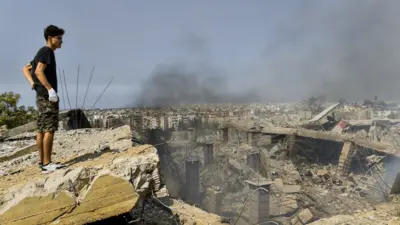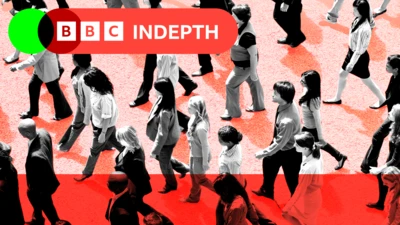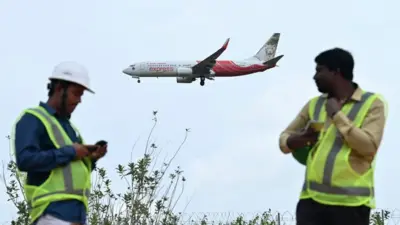We've updated our Privacy and Cookies Policy
We've made some important changes to our Privacy and Cookies Policy and we want you to know what this means for you and your data.
Syrian universities weakened by 'brain-drain', says report
Image source, Reuters
- Author, June Kelly
- Role, ΒιΆΉΤΌΕΔ News
Eight years on from the start of the war, Syria's universities are suffering from corruption, under-funding and a brain drain, a report has found.
Syria's higher education system has been devastated by conflict, according to Cambridge University researchers and Syrian academics in exile.
An estimated 2,000 university professionals were among the exodus of refugees, the researchers found.
One man said jihadists killed his brother and put him in a video.
The report, commissioned by the British organisation the Council for At-Risk Academics (Cara), as part of its Syria programme, describes a sector undermined by the destruction of facilities and human rights violations as well as what it calls curriculum stagnation and the militarisation of campuses.
The research was carried out during a 12-month period over 2017-18.
The team spoke to 19 Syrian academics living in exile in Turkey, some of whom described how they had suffered detention at the hands of the Islamic State group.
One scientist said that, following his release, he learned his captors had said: "If we catch him, in any area, we will kill him because he didn't help us to produce a bomb."
Another said: "My younger brother, who had a family of five children, was killed.
"IS put him in one of their videos."
One of the exiled academics felt his life was at risk from different sides, with his life under threat from "the regime, the regime army and the jihadists."
He believed this was a consequence of him working in a regime-controlled region and living in an area not run by the regime.
One of his fellow refugees, explaining his decision to leave, said: "Somebody had written an unofficial report saying that I was speaking out against the military or against the president, maybe one of my students.
"So I was called for interrogation by the military security services. When I was released I told my wife that we had to get ready to move."
The researchers also spoke to 117 staff and students at 11 universities inside Syria: Eight in areas controlled by the Assad regime and three in non-regime areas.
Interviews were carried out via app or email.
"There are so many students that we spend most of our lessons standing for more than two hours," said one undergraduate.
Another spoke of "no modern equipment, just boards and pens".
But staff from one private regime-controlled university expressed an entirely different experience saying: "The university's financial resourcing is excellent."
However there was general complaint about students being forced to follow an outdated curriculum.
Among the report's recommendations is a call for the Syrian higher education sector to re-engage in international partnerships with other Middle Eastern, Western and European universities.
And in the immediate future it says state security forces should be replaced on campuses by civilian security personnel.
But the authors believe the most pressing issue is that the haemorrhaging of intellectual talent and the security threat to individuals means that academics are not able to play their part in rebuilding Syrian society and shaping the country's future.
Prof Colleen McLaughlin of Cambridge University's faculty of education said: "This collaborative research project was challenging to undertake given the context.
"The results are important and so is this way of collaborating.
"Cara's work to support Syrian displaced academics is vital and we need to remember and honour their work as well as continue to support research into the reality of Syrian higher education."
Top Stories
More to explore
Most read
Content is not available








